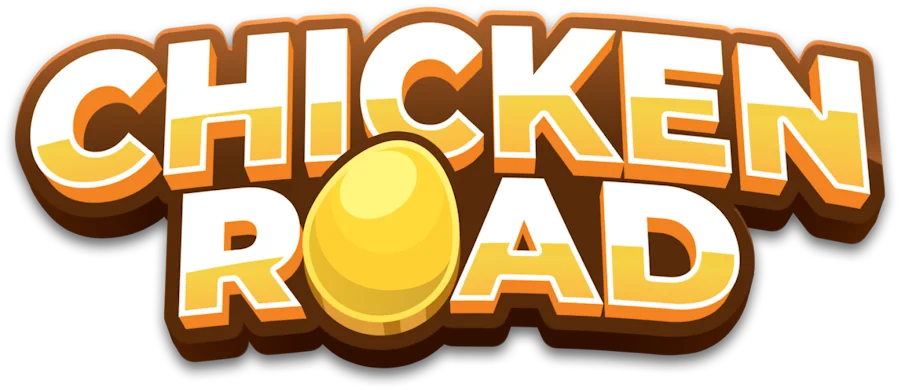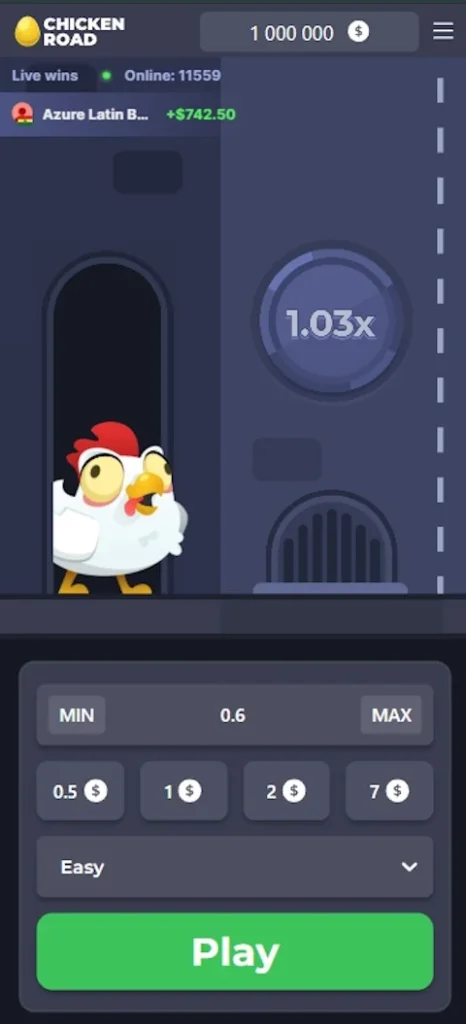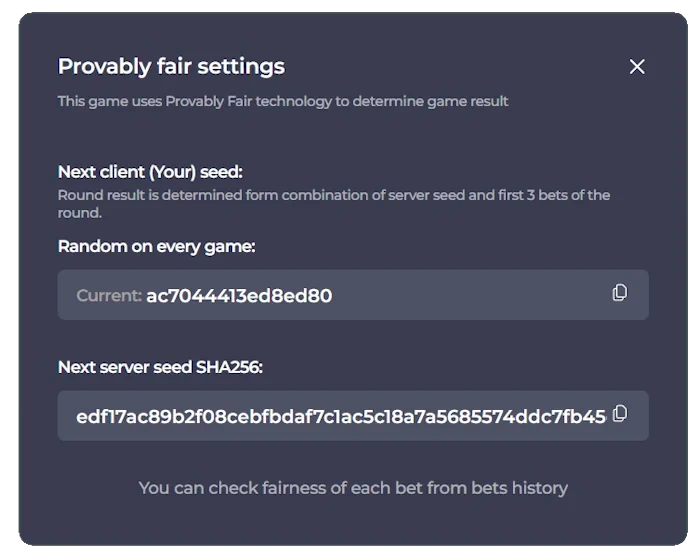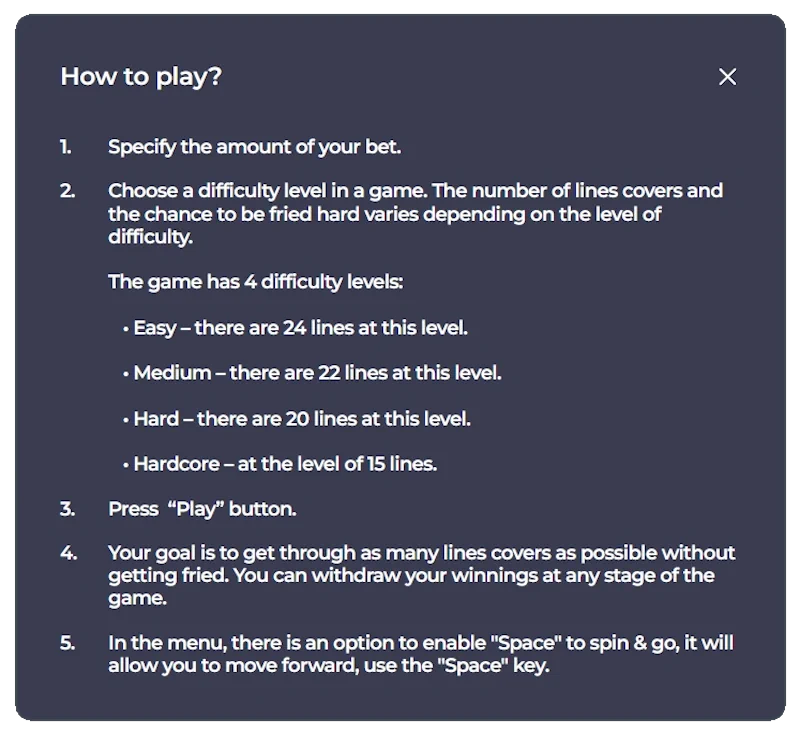Chicken Road Online – Play for Real Money 2025!
Chicken Road is one of the most talked-about crash-style games to arrive in recent months. Combining quick reactions with calculated choices, it offers players a dynamic experience that feels different from traditional betting formats. With a playful aesthetic and several gameplay options, it appeals to both cautious newcomers and those seeking high-risk thrills.
In the following guide, we’ll explore the fundamentals of Chicken Road, examine what makes it unique, and highlight some useful tactics that can enhance your sessions.
How Chicken Road Works
Chicken Road is structured around a simple, yet suspenseful loop: the longer you stay in the game, the more you can win — but only if you exit before it’s too late. Rather than spinning reels or predicting cards, here you’re observing a chicken make its way along a hazardous path, each step increasing your potential payout. The moment you choose to “cash out” determines your final reward.
At its core, this is a game of timing and risk awareness. Every round starts with a wager, and then it’s up to you to decide how far to go before danger strikes. If you wait too long and the run ends abruptly — commonly referred to as a “crash” — you lose the bet. Success comes from reading the moment, setting boundaries, and avoiding overconfidence.
Unlike games that rely purely on luck, Chicken Road adds a strategic element that invites both planning and adaptation. You’re not just reacting — you’re making choices based on evolving conditions and your personal tolerance for risk.
Tech Specs for Power Players
For players who value the numbers behind the gameplay, here’s a quick reference of Chicken Road’s technical foundation — from payout potential to platform support.
| Feature | Details |
|---|---|
| Release date | 04.04.2024 |
| Return to Player (RTP) | 98% |
| Max Multiplier | Up to x3,203,384.8 (in Hardcore Mode, theoretical max) |
| Max Win per Round | Typically capped at €20,000–€50,000 (varies by operator) |
| Game Modes | Easy, Medium, Hard, Hardcore |
| Collision Probability | From ~4% (Easy) to ~40% (Hardcore) |
| Technology | HTML5 — compatible with all modern devices (no app install required) |
| Control Options | PC (mouse/keyboard), Mobile (touch/swipe) |
| Provably Fair | Yes — transparent outcome validation before every round |
| Developer | INOUT Games |
| Licensing | Curaçao eGaming |
Choosing the Right Mode — What Kind of Player Are You?
One of Chicken Road’s most distinctive features is its flexible difficulty system. Instead of offering a single way to play, the game presents multiple modes, each designed for a specific type of player — whether you’re after reliable low-risk runs or dramatic high-stakes scenarios.
Each mode adjusts several key variables: the number of steps needed to reach the end, the likelihood of encountering a crash, and the possible range of multipliers. The more difficult the mode, the higher the rewards — but also the steeper the danger. This lets players tailor their experience based on mood, bankroll, or long-term goals.
Understanding these modes isn’t just about preference; it’s about aligning your approach with your risk tolerance. Below, we break down what each difficulty setting offers — and how it changes the way you might play.

Easy Mode: Slow Progress, Steady Outcomes
Ideal for beginners or conservative players, Easy Mode reduces the chance of failure significantly. With more steps and a lower probability of collision, it’s designed for those who prefer consistent small wins over risky plays. Multipliers grow gradually, making this mode suitable for auto-cash-out strategies or long-term play.
While the payouts may not be dramatic, Easy Mode is perfect for learning the game, testing strategies, or simply playing with minimal stress.
Medium Mode: Balanced Play with Reasonable Risk
For those seeking a mix of safety and excitement, Medium Mode hits the sweet spot. It introduces a higher challenge while still offering manageable odds. Multipliers start to rise faster, and decisions become more impactful as you advance through the round.
This mode suits players who enjoy thinking tactically but aren’t ready to commit to the extremes of Hardcore.
Hard Mode: Elevated Risk and Reward
Hard Mode caters to experienced players who are comfortable navigating higher volatility. The number of steps is reduced, the danger appears more frequently, and the potential returns climb rapidly. It demands sharper instincts and more deliberate cash-out timing.
In this mode, hesitation can cost you everything — but timely exits can result in significant payouts.
Hardcore Mode: Only for the Bold
Reserved for thrill-seekers, Hardcore Mode offers maximum intensity. The path is short, the risk is high, and the multipliers can be astronomical. However, crashes are much more common, and poor timing can quickly drain your bankroll.
This mode is best approached with strict discipline and a clear strategy. When used sparingly and wisely, it has the potential to deliver some of the game’s most dramatic wins.
Visual Cues and Symbols to Watch
Throughout all modes, Chicken Road provides visual indicators that help players anticipate and react. Elements like fire symbols, moving hazards, or the coveted Golden Egg serve both as gameplay features and signals of what’s ahead. Learning to interpret these cues adds another layer of strategy — especially in modes where reaction time matters most.




Winning Strategies for Chicken Road in 2025
While Chicken Road is built on risk, it’s far from being a game of pure chance. The structure of the game rewards players who plan ahead, know their limits, and understand how to balance caution with opportunity. We prepare the key strategies tailored to different playstyles and levels of experience:
Start with a Plan, Not a Reaction
Many players make the mistake of chasing multipliers without thinking through their session. Before launching a round, define your goals: are you playing for long-term balance or hunting a big win? Establish rules for cashing out — and stick to them. Emotional decision-making is often what leads to fast losses, especially in higher-risk modes.
Set Multiplier Targets — and Respect Them
A popular approach is to choose a target multiplier in advance (for example, x2.5 or x5) and consistently cash out when it’s reached. This helps eliminate impulsive behavior and creates a pattern you can evaluate and refine over time. It’s not about winning every round — it’s about maintaining discipline and minimizing unnecessary risk.
Use Auto-Cash for Stability, Manual Control for Flexibility
Chicken Road allows you to either automate your exit at a chosen multiplier or manually cash out when you feel the moment is right. In lower modes, auto-cash is ideal for consistency and testing mathematical strategies. In tougher settings — especially with Space Mode — manual control becomes more effective, letting you respond to visual cues and timing.
Segment Your Bankroll by Mode
Smart players allocate their balance across different difficulty levels. For example, you might reserve 70% for Easy/Medium games and the rest for calculated attempts in Hard or Hardcore. This prevents full exposure to volatility while still allowing room for larger wins. Tracking your results by mode can also help you fine-tune your overall playstyle.
Use the Demo to Practice — It’s There for a Reason
Starting with the demo version is recommended to explore mechanics, pacing, and strategic opportunities in a risk-free environment. It mirrors the full gameplay experience, including controls and difficulty options, making it a valuable tool for understanding key systems before placing real bets.
What Sets Chicken Road Apart from Other Crash Games?
At a glance, Chicken Road may seem to follow the same principles as other crash games — wager, wait, and exit before it’s too late. But under the surface, it introduces a series of design choices and features that give it a distinct identity and more active engagement than most titles in the genre.
Here’s what separates Chicken Road from the crowd:
Space Mode: A Gameplay Mechanic That Puts You in Control
Rather than passively watching the action unfold, Space Mode hands over the reins. In this mode, you’re not just betting on survival — you’re steering it. On desktop, players use keyboard or mouse controls to guide the chicken forward; on mobile, intuitive swipe actions make the experience tactile and immersive.

This transforms the game from a simple timing test into an interactive challenge. You’re not only reacting to probabilities — you’re making real-time decisions that influence your outcome.
A Blend of Arcade Aesthetics and Casino Logic
Chicken Road doesn’t rely solely on numbers and multipliers to keep players engaged. Its lighthearted visual style, quirky animations, and stage-like level design borrow heavily from casual and arcade games. But don’t let the cartoonish look fool you — underneath is a structured, mathematically-driven crash system designed for serious play.
This visual layer isn’t just cosmetic. Animations like fire blasts or golden cues help you read the environment and anticipate danger, especially in manual play.
Flexible Playstyle Options: Passive or Active?
Whether you want a hands-off approach with auto-cashouts and low-stakes rounds, or prefer an adrenaline-fueled session in Hardcore Space Mode, the game accommodates both. It doesn’t force you into one rhythm — you can shift between modes, strategies, and control styles depending on your mood or goal.
This flexibility is what gives Chicken Road longevity. It doesn’t burn out after a few rounds — it evolves with your experience.
We’ve prepared a comparison table:
| Feature | Chicken Road | Typical Crash Game |
|---|---|---|
| Manual Control | Yes (Space Mode) | No |
| Difficulty Modes | 4 modes with adjustable volatility | Usually 1 fixed progression curve |
| Return to Player (RTP) | 98% | 95–97% on average |
| Max Theoretical Mult. | Up to x3,203,384.8 (Hardcore Mode) | Rarely exceeds x100,000 |
| Visual Presentation | Animated, stage-based with active cues | Minimalist or abstract visual style |
| Playstyle Options | Passive or active control (customizable) | Primarily passive (auto-based) |
| Fairness Transparency | Provably Fair system | Varies by provider |
Proven Fairness & INOUT Games Credentials
Behind Chicken Road’s engaging design and high RTP lies a serious technical and regulatory foundation. INOUT Games, the developer behind the title, has built its reputation on transparency, innovation, and compliance — all critical for players seeking trustworthy experiences in the crash game space.
Meet the Developer: INOUT Games
INOUT Games is a relatively young but fast-growing iGaming studio, known for blending game-like elements with traditional gambling mechanics. The studio has gained industry attention for creating titles that are both entertaining and technically sound. Chicken Road is one of their flagship products — nominated for Best Crash Game 2025 by the SiGMA Africa Awards, a notable recognition in the online gaming world.
Licensed and Regulated for Safe Play
The game is operated under a license from Curaçao eGaming, a well-established regulatory body for online casinos and gambling software. While not as strict as some jurisdictions, Curaçao licensing still requires verification of fairness, responsible gaming practices, and platform stability.
This means that Chicken Road can be legally offered by licensed casino operators and is subject to ongoing compliance checks.
What Does Provably Fair Mean for Players?
The Provably Fair system embedded in Chicken Road allows players to verify that each game round is not manipulated. Before every round starts, a cryptographic hash is generated, representing the outcome. After the round ends, players can compare the result to the original hash, confirming that no alterations occurred mid-game.
This transparent mechanism is especially important in crash games, where timing is everything — and trust in the process is essential.

Player Tips, Missteps & What to Avoid
Chicken Road is simple to learn but difficult to master — especially when emotion creeps into decision-making. While the game rewards bold moves, careless habits can quickly lead to frustration or loss. To stay sharp and consistent, it’s important to understand not just what works, but what commonly goes wrong.
Here are key lessons experienced players have learned — often the hard way:
Don’t Fall for the “Just One More Step” Trap
It’s tempting to keep going when a round is going well — especially when you’re only a few steps away from a bigger multiplier. But this mindset often leads to crashes. Set a clear exit point before each round and treat it as a rule, not a suggestion.
Avoid Chasing Losses — This Isn’t a Recovery Game
Because Chicken Road is round-based and fast-paced, it’s easy to fall into the trap of thinking the “next run” will make up for the last one. This kind of emotional chasing rarely ends well. The most successful players stay detached, treating each round independently.
Don’t Rely on Hot/Cold Patterns — It’s Randomized
Although the game uses a Provably Fair system, some players try to “read” the patterns — assuming streaks of wins or losses signal what’s next. This illusion of control can be dangerous. Each round is generated independently and should be approached as such.
Avoid Playing Without a Goal or Budget
Going into a session without a clear idea of how much you want to spend — or how much you aim to win — increases the risk of overspending. Set both lower and upper limits, and walk away once you reach them.
Practice in Demo Mode Before Going All In
Jumping into Hardcore Mode without understanding the game’s rhythm is one of the most common missteps. It’s better to familiarize yourself with pacing, risk spikes, and decision flow using low stakes or training scenarios.

Final Verdict — Is Chicken Road Worth It?
Chicken Road introduces a refined approach to crash mechanics by integrating multiple difficulty levels, real-time movement, and a 98% RTP into a visually distinctive, provably fair structure. Its standout features — including the manually controlled Space Mode and tiered volatility settings — allow for dynamic risk management and strategic variation across sessions. This flexibility makes it a technically robust alternative to more static crash games.
At the same time, the game requires a disciplined mindset. The illusion of control and escalating multipliers can encourage overly aggressive play, especially without clear stop-loss strategies. Chicken Road rewards structured thinking and situational awareness more than impulsive decision-making, making it best suited for players who approach it as a system to learn, not just a thrill to chase.
Frequently Asked Questions (FAQ)
-
1. What is Chicken Road and how does it work?
-
2. How does the RTP in Chicken Road compare to other crash games?
-
3. What is the difference between the game’s difficulty modes?
-
4. What is Space Mode and how is it played?
-
5. Is Chicken Road a Provably Fair game?
-
6. What is the maximum I can win on Chicken Road?
-
7. Can Chicken Road be played for free?
-
8. Does the game work on mobile devices?
-
9. What are the risks associated with Chicken Road?
-
10. How is Chicken Road different from other crash games?
